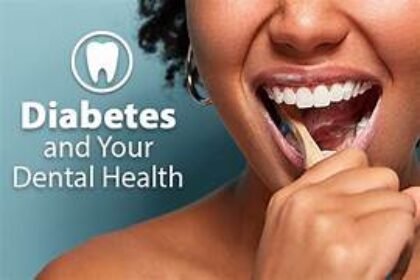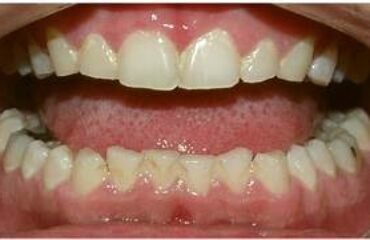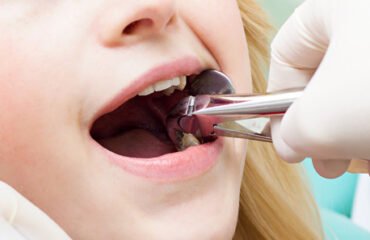 THE DIABETES – ORAL HEALTH CONNECTION Many people do not realize the correlation between Diabetes and Oral Health. Diabetes is a disease that can affect the entire body — including the mouth. People who are living with diabetes face a higher than normal risk for more oral health problems, leading to other conditions.Before we delve into the oral health specifics, let’s demystify diabetes. Diabetes is a complex health condition that affects how your body processes sugar or glucose. There are two main types: Type 1, which is often diagnosed in kids and teens, and Type 2, more common in adults and frequently linked to lifestyle factors.Type 1 diabetes occurs when your immune system goes a bit haywire and mistakenly attacks the insulin-producing cells in your pancreas. Insulin is the hormone responsible for regulating blood sugar levels, so when it’s in short supply, your blood sugar levels go on a rollercoaster ride.Type 2 diabetes, on the other hand, often creeps up gradually and is closely tied to factors like diet, physical activity, and genetics. In this type, your body either becomes resistant to insulin or doesn’t produce enough of it. As a result, glucose can’t enter your cells efficiently, leading to elevated blood sugar levels. Since individuals with diabetes are more likely to develop oral health problems, prevention is key and moving forward in a healthy lifestyle should always be ones first line of defense. The biggest factor in the correlation between diabetes and developing oral health problems is high blood sugar. Uncontrolled diabetes or maintaining a poor blood sugar count, weakens the white blood cells from within the body. White blood cells are the main fighters against any bacterial infections that may occur in the mouth. Research has proven that by controlling one’s blood sugar levels, a person is at lower risk of major organ complications brought upon by diabetes — such as eye, heart, and nerve damage.The Top Oral Health Conditions Associated with Diabetes Are:Higher risk of:
THE DIABETES – ORAL HEALTH CONNECTION Many people do not realize the correlation between Diabetes and Oral Health. Diabetes is a disease that can affect the entire body — including the mouth. People who are living with diabetes face a higher than normal risk for more oral health problems, leading to other conditions.Before we delve into the oral health specifics, let’s demystify diabetes. Diabetes is a complex health condition that affects how your body processes sugar or glucose. There are two main types: Type 1, which is often diagnosed in kids and teens, and Type 2, more common in adults and frequently linked to lifestyle factors.Type 1 diabetes occurs when your immune system goes a bit haywire and mistakenly attacks the insulin-producing cells in your pancreas. Insulin is the hormone responsible for regulating blood sugar levels, so when it’s in short supply, your blood sugar levels go on a rollercoaster ride.Type 2 diabetes, on the other hand, often creeps up gradually and is closely tied to factors like diet, physical activity, and genetics. In this type, your body either becomes resistant to insulin or doesn’t produce enough of it. As a result, glucose can’t enter your cells efficiently, leading to elevated blood sugar levels. Since individuals with diabetes are more likely to develop oral health problems, prevention is key and moving forward in a healthy lifestyle should always be ones first line of defense. The biggest factor in the correlation between diabetes and developing oral health problems is high blood sugar. Uncontrolled diabetes or maintaining a poor blood sugar count, weakens the white blood cells from within the body. White blood cells are the main fighters against any bacterial infections that may occur in the mouth. Research has proven that by controlling one’s blood sugar levels, a person is at lower risk of major organ complications brought upon by diabetes — such as eye, heart, and nerve damage.The Top Oral Health Conditions Associated with Diabetes Are:Higher risk of:- Dry mouth: If you are unable to get control over diabetes, the levels of saliva (spit) will decrease in flow and this will cause dry mouth. Dry mouth is seemingly common but if not treated, it can result in or lead to further ailments like soreness, ulcers, infections and tooth decay.
- Gum inflammation (gingivitis)and periodontitis: If you suffer from diabetes not only can it weaken your white blood cells, but another complication is that it thickens the blood vessels. If the blood vessels thicken, it inevitably slows down the flow of nutrients for proper function, along with slowing down the waste products from the necessary body tissues, including the mouth. The combination of this diminishes the body’s strength and ability to combat infections- hence why many will experience periodontal disease or frequent/more severe cases of gum disease.
- Poor healing of oral tissues: Individuals who are coping with diabetes do not recover as quickly post oral surgery or other any dental procedures because blood flow to the treatment site can often be damaged or weakened. This is also why smoking puts you at a higher risk for oral disease when you have diabetes- it seems to impair blood flow to the gums which may also affect the healing of sensitive tissue areas.
- Thrush: Individuals with diabetes are more prone to fungal infections in the tongue and mouth due to the frequency and types of various antibiotics that they are ingesting. Wearing dentures increases the chance of fungal infection as well. The reason fungal infections can thrive in the mouth is because of high glucose levels cause by saliva. Another condition which is caused by the presence of thrush is an uncomfortable burning sensation in the mouth and/or tongue.
- Understand your blood sugar levels. Check the range often and keep your blood sugar as close to normal as possible.
- At every dental visit, it is important to keep your dentist up to date on the status of your diabetes. For example, know your glycosylated hemoglobin (HgA1C) level. (Good control is indicated by a level under 7%). If you’ve had an episode of low blood sugar (also called an insulin reaction) in the past, you are at increased risk to have another one.
- When was your last episode?
- How frequently do such episodes occur?
- And when did you take your last dose of insulin (if you take insulin)?
- Bring your dentist a list of all the names and dosages of medications that you are taking. Your dentist will need to know this information to prescribe additional medicines least likely to interfere with your current medications. If a major infection is being treated, your dosages/timing may need to be adjusted.
- If your blood sugar or it is not in good control, postpone any non-emergency dental procedures. Although acute infections (infections that develop quickly), such as abscesses, should be discussed and treated right away.
- Since recovery/healing may take a little longer in individuals with diabetes, it is important to follow your dentist’s oral hygiene instructions closely as well as any post-treatment instructions.
- Contact your orthodontist immediately if a wire or bracket (such as those in braces) cuts your tongue or mouth so other infections cannot develop.
- Make sure you have your teeth and gums cleaned and checked by your dentist at least twice a year- some dentists may recommend more frequent checkups. Speak to your dentist to determine how often you should be coming in.
- Prevent plaque buildup on teeth by using dental floss at least once a day.
- Brush your teeth after every meal. Use a soft-bristled toothbrush.
- If you wear dentures, remove them and clean them daily.
- If you smoke, talk to your doctor about ways to quit.




